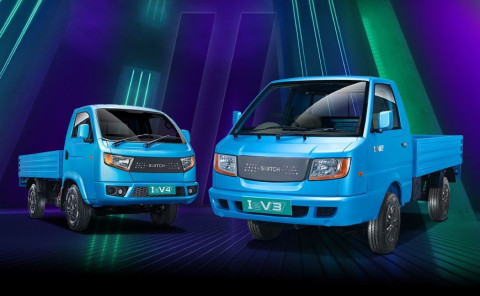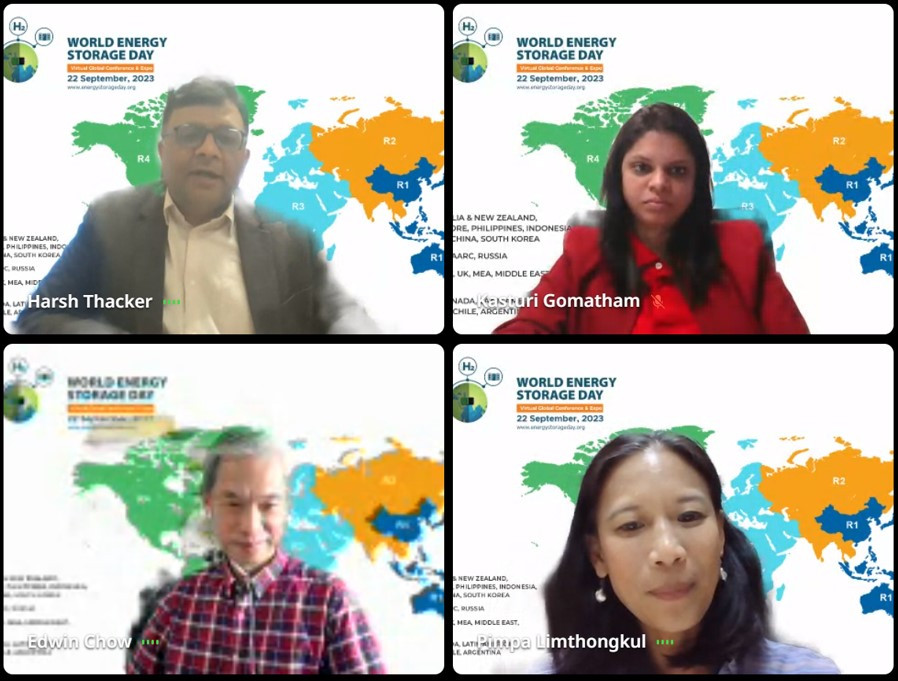At the on-going World Energy Storage Day (WESD) 2023 virtual conference, a session was dedicated to discuss on the e-mobility scenario and trends in the R1 Asia Pacific region, which includes countries such as Australia, New Zealand, Singapore, Philippines, Indonesia, Japan, China, and South Korea. The discussion was moderated by Harsh Thacker, Director & Analyst- Emerging tech, Customized Energy Solutions.
Speaking on the battery swapping initiatives of Shell plc, Kasturi Gomatham, the MNC's Global Head of Battery Swapping (E-Mobility), said the the emerging e-mobility ecosystem across the globe is so integrated than other any other transportation ecosystems that are prevalent right now. She detailed out her company's innovative approach to e-mobility services including battery swapping as a critical means to further EV adoption.
"Battery swapping decouples certain critical links that inherently create bottlenecks for EV adoption. For instance, the concept decouples grid from that of the dynamic EV charging needs; decouples battery from the vehicle itself - thereby enabling users to not feel the brunt of the battery upfront cost and extend vehicle life beyond that of the battery packs", she opined.
Kasturi added that the battery swapping is very complementary and practical means to address the current bottlenecks to EV adoption in developing markets, more so in countries in the region such as China, Asia, Vietnam, Singapore, Hong Kong, and so on. "Each market in Asia Pacific presents different opportunities that are hard to ignore", she said.
In terms of segments, she noted that commercial fleets with higher levels of vehicle utilization, especially in delivery services and e-commerce applications, will constitute the most important use case for battery swapping. "The concept saves time, reduces upfront cost, and offers higher fleet uptime for commercial operations. But the B2C segment is also catching up, especially in China with Shell operating battery swapping stations", Kasturi added.
Edwin Chow, Asia-Pacific Regional Sector Head, Auto and Engineering & Manufacturing, DHL, spoke on the importance of efficient and sustainable logistics and storage needs of the EV battery and battery energy storage manufacturing and supply chains in the region.
"Battery supply chain requires different transportation modes and specialist storage facilities at different stages, starting from the pre-production raw material stage to the transportation of finished EVs (or ESS) to the users", he said.
Chow identified key industry challenges faced by battery suppliers and product manufacturers, and explained how his company DHL is enabling end-to-end, modular solutions in high-voltage lithium battery logistics in global markets.
Further, the session also saw the presentation of Pimpa Limthongkul, President, Thailand Energy Storage Technology Association (TESTA), who gave a detailed overview of Thailand's EV adoption and manufacturing scenario, linking it to the country's net-zero strategy and '30@30' policy to achieve its EV goals.
"The whole Asian region is presenting big opportunities towards EV adoption and supply chain. Thailand, with its vibrant automotive demand market and robust manufacturing setup, is picking up in a steady pace to embrace e-mobility", she observed.
For all latest updates from the WESD 2023 event, visit our LinkedIn page.

Switch Mobility unveils IeV3, IeV4 electric mini trucks in India
Read More

